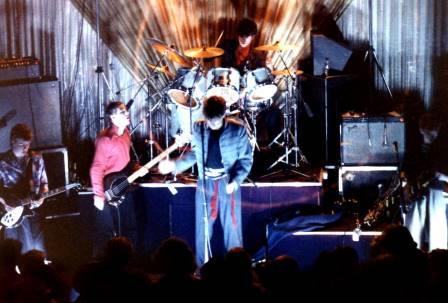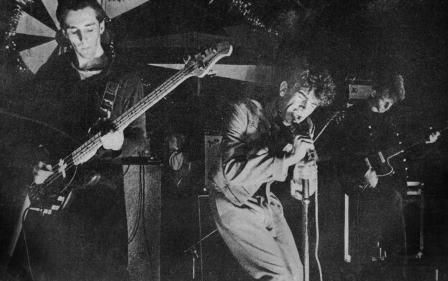
| |||||
|
|
The Pop Group were an explosive mutant gene that made British punk seem safely safety-pinned. A deranged fusion of punk rock, dub reggae, free jazz, political poetics and horrific noise, they never exactly fit in, but ultimately served as a do-what-thou-wilt clarion call to a legion of admirers, starting with feminist-skanking sister band the Slits. Nick Cave, who has described the Pop Group's music as "unholy, manic, violent, paranoid and painful," grafted their anarchic spirit onto the Birthday Party. They paved the way for Fugazi's politicized dissonance, Massive Attack and Nine Inch Nails' larger-than-life soundscapes, and the dancefloor-friendly art-rock moves of contemporary bands like Yeah Yeah Yeahs and Liars.
Among their rabble-rousing post-punk contemporaries, none boasted as much sheer musical inventiveness and audacity. The cocky Bristol teenagers who formed the group in 1977 produced only two albums and an eternally relevant single in "We Are All Prostitutes." They sagely hired Dennis Bovell
a dub producer run wild with their music. By 1981 they were done, torn asunder by personal politics and the allure of avant-jazz.
In 2010, founding members Gareth Sager (guitar, piano, music), Bruce Smith (drums) and Mark Stewart (vocals, lyrics) decided to give the Pop Group another go. With a third studio album in the can, they've also embarked on a reissues program beginning with We Are Time, a collection of live tracks released originally in 1980, and Cabinet of Curiosities, a brand new compilation that features an early version of "She Is Beyond Good and Evil," a song that St. Vincent covered throughout her Strange Mercy tour.
Rolling Stone talked to the band's three founding members for a complete accounting of the Pop Group saga, shedding some light on four years that made punk history.
|
|
|

